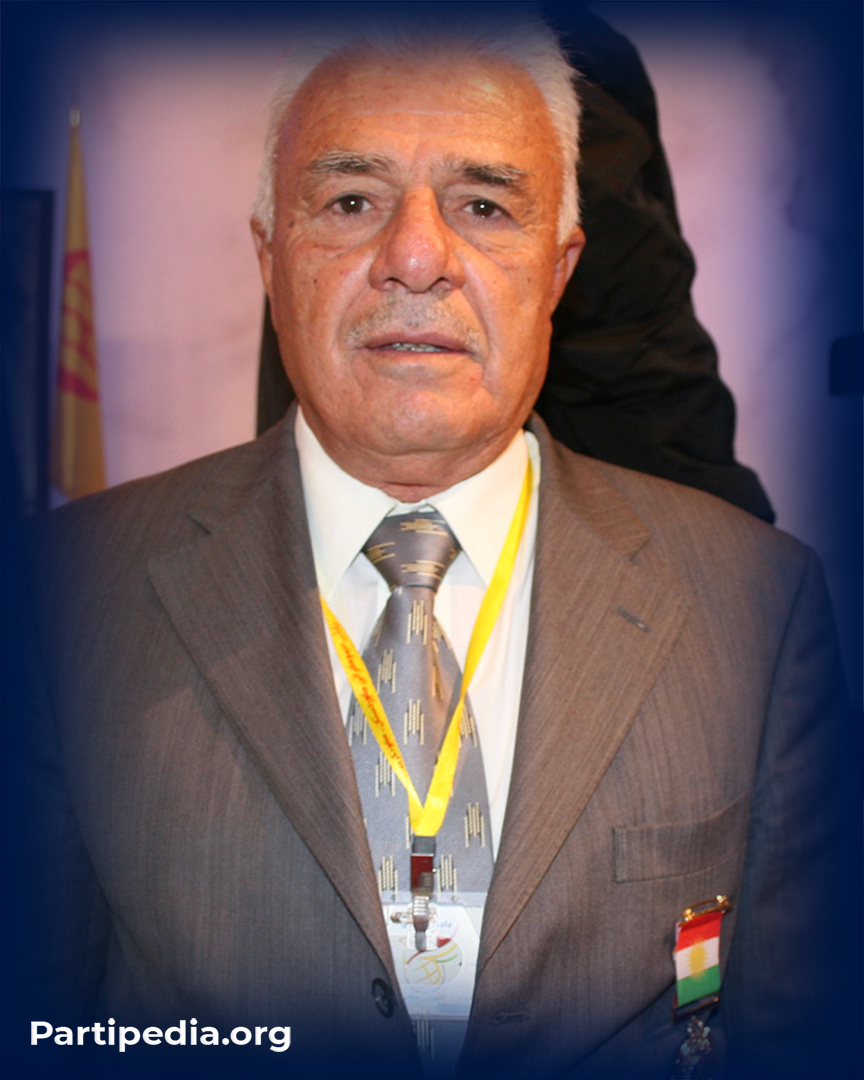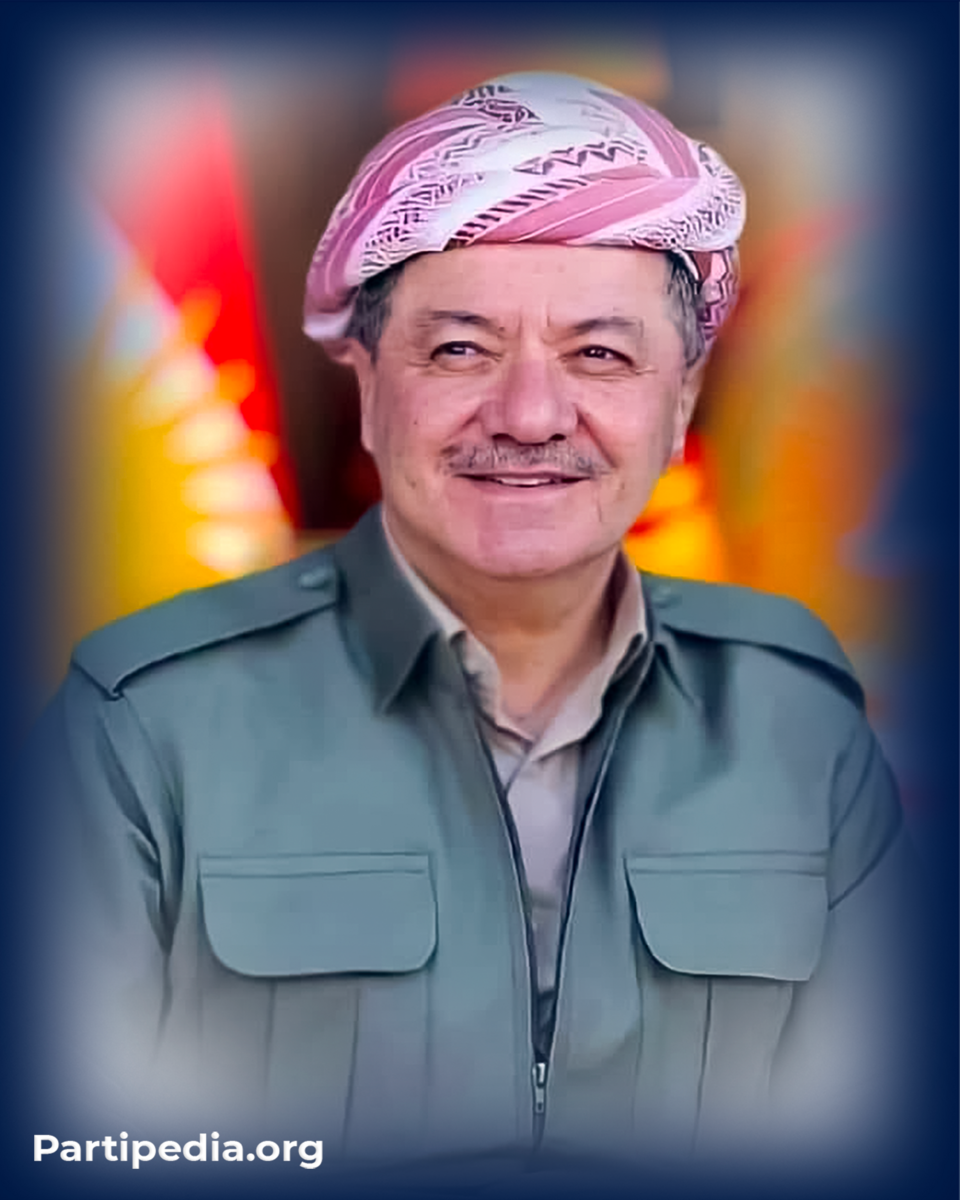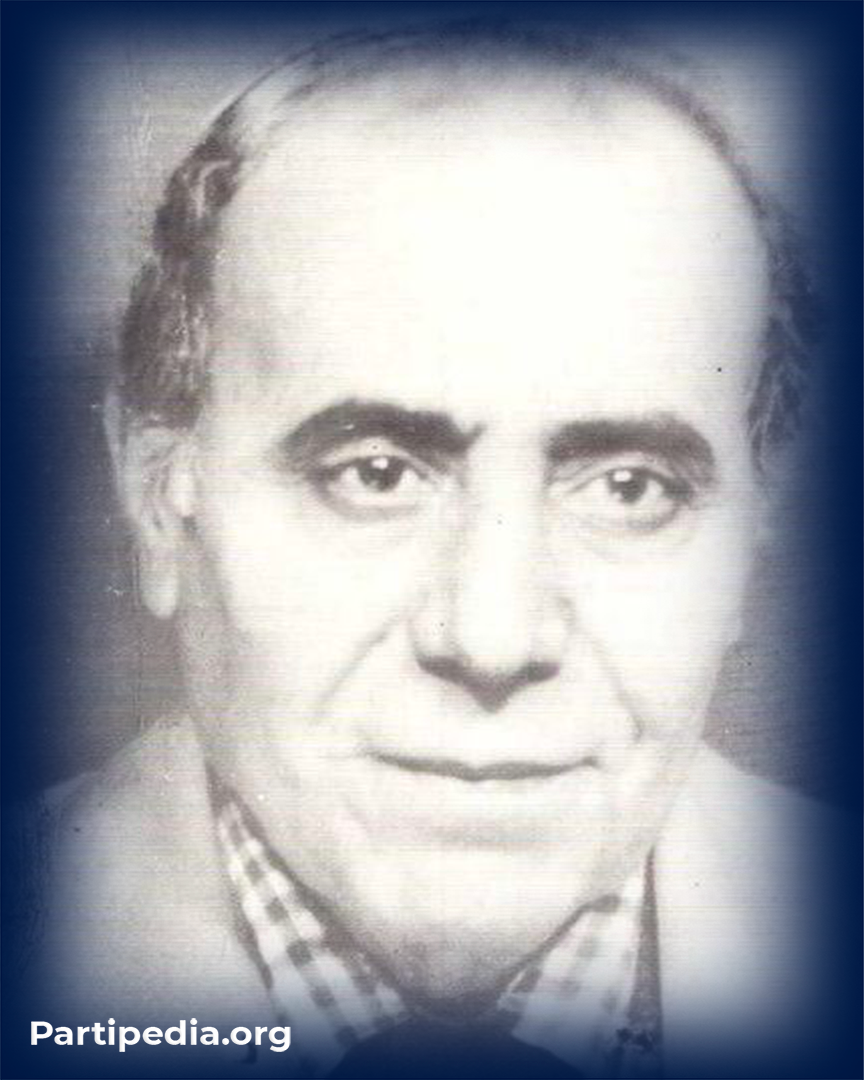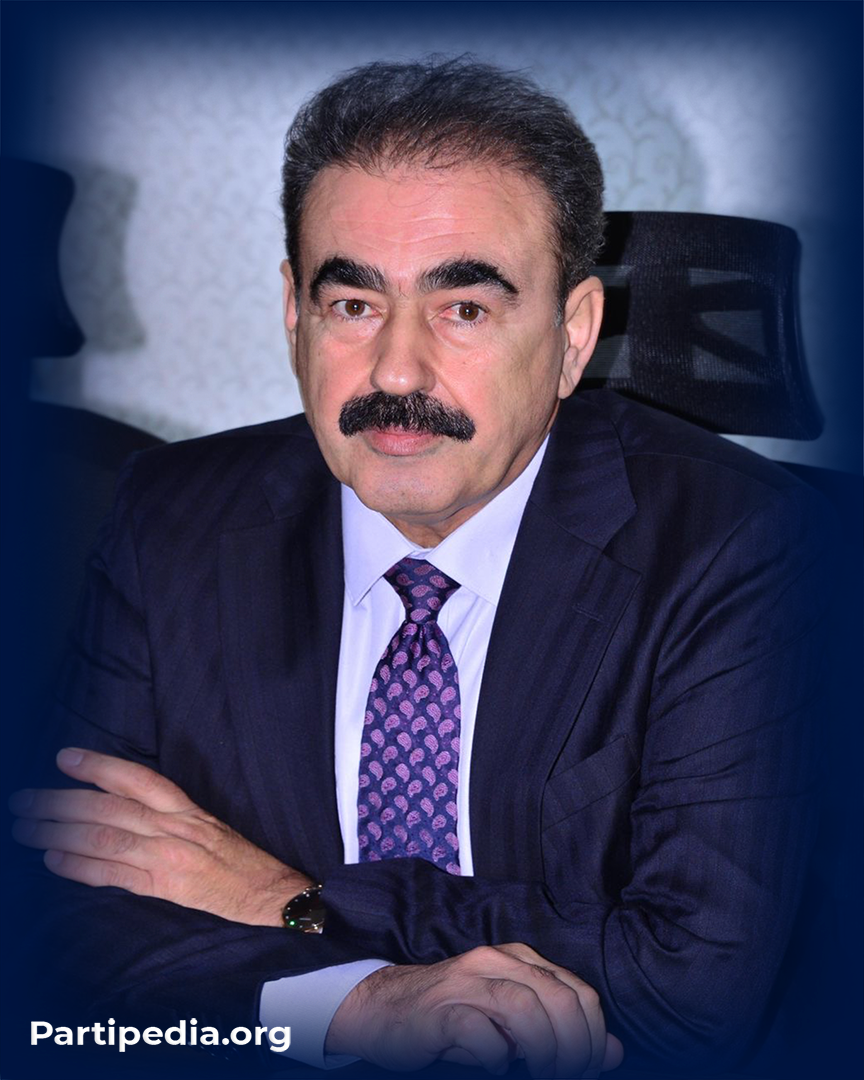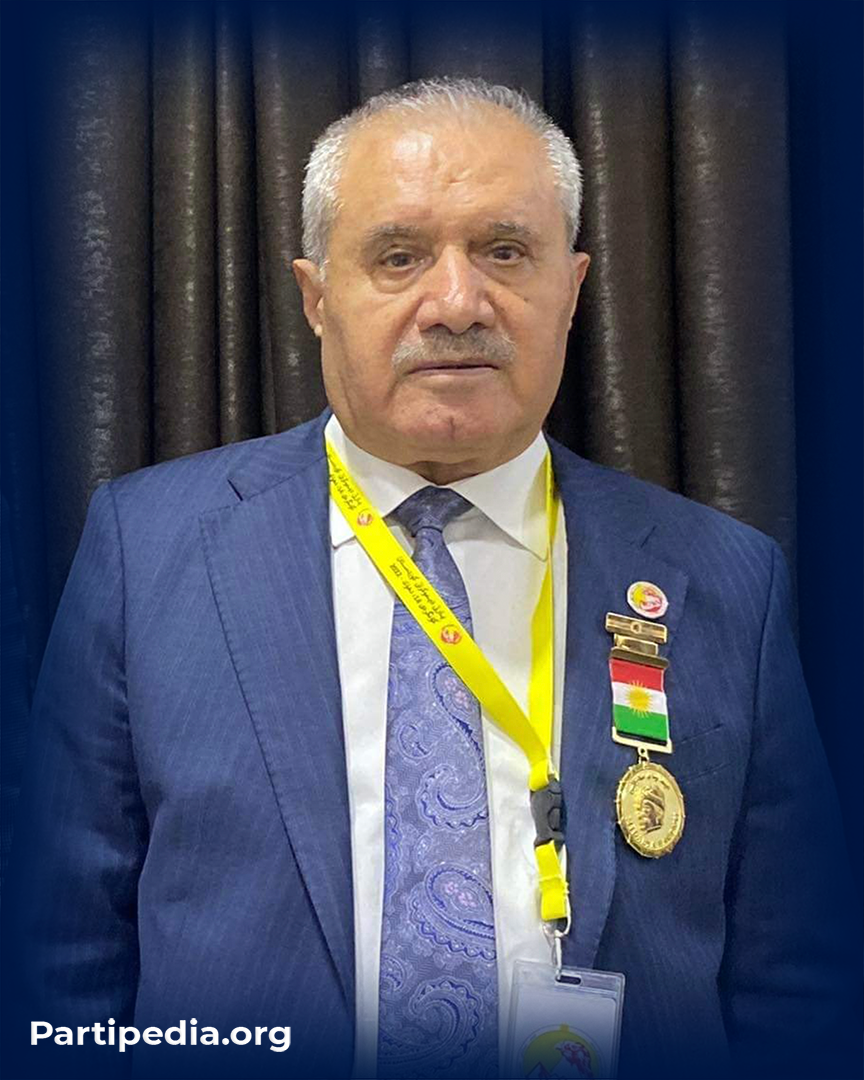Abdulmuhaiman Sheikh Sulaiman Sheikh Abdulsalam Sheikh Mohammed, also known as Abdulmuhaimen Barzani, joined the ranks of the Kurdistan Democratic Party (KDP) in 1962. In 1973, he graduated from the third round of the KDP cadre training school. He was displaced to Iran in 1975 after the collapse of the September Revolution. In 1989, he became a member of the Central Committee of the KDP at the 10th Congress. From 2 September 1992 to 3 August 1994, he was a Governor of Erbil in the first cabinet of the Kurdistan Regional Government. In 1994, he was a member of the command and administrative head of the Kurdistan Army (Falak). In 1999, he became a reserve member of the central committee of the KDP in the 12th Congress. In 2001, he was appointed as the minister of the region in the fourth cabinet. In 2002, he became acting minister of municipalities. In 2010, he was elected as a member of the leadership council of the KDP at the 13th Congress. In 2010, he was awarded the Immortal Barzani Medal by President Massoud Barzani as the first member of the Barzani family for his participation in the September Revolution, the May Revolution, the South Kurdistan Uprising and the sovereignty period.
Biography
Abdulmuhaiman Barzani was born on July 15, 1945, in Erbil. He belonged to the family of the sheikhs of Takya Barzan and a follower of Maulana Khalid Naqshbandi (1779-1827) and the son of Sheikh Sulaiman Sheikh Abdulsalam II of Barzani, who was a comrade of Barzani's journey to the Soviet Union in 1947. He was a member of the South-East Kurdistan Leadership (Baku Conference). In 1945, after the collapse of the Second Barzan Revolution (1943-1945), when Abdulmuhaimen Barzani was a child, he fled to East Kurdistan with his family. In 1947, after the collapse of the Kurdistan Democratic Republic, he returned to southern Kurdistan with his family, and was expelled to Karbala in central Iraq, then to Basra in southern Iraq, and then to Baghdad. He graduated from the third grade of secondary school. In 1958, he was among the receivers of President Mustafa Barzani in Baghdad when he returned home from the Soviet Union.
Abdulmuhaimen’s Striving Record
Abdulmuhaimen Barzani joined the KDP in 1962. In 1968, he joined the rank of Peshmerga forces of the September Revolution, and he served as a writer at Barzani's headquarters. In 1973, he graduated from the third round of the KDP cadre training school in Balakaity region of Erbil province. In 1973, he commanded the battle of Mount Pirs in Erbil province against the Iraqi army's ground forces. In 1974, he was the commander of the Battle of Spilk in Erbil province. In 1974, he was in charge of the Kurdistan Democratic Party's relations with the Iranian authorities in order to obtain permission to cross the border. He fled to Iran in 1975 after the collapse of the September Revolution. From 1975 to 1976, he was a member of the committee for recording statistics and assisting refugees from South Kurdistan in Iran in Karaj. In 1976, he supervised postal affairs, sending armed groups, cadres and money to the interim leadership of the KDP. In 1979, he was a delegate to the 9th Congress of the KDP. In 1983, Abdulbari Abdulsalam and his brother Misbah Abdulsalam went missing during the Barzani Anfal process. On July 16, 1985, he was appointed as a member of the Relations Department of the KDP. On November 14, 1985, he was appointed a member of the Military Department of the KDP. In 1987, he was one of the commanders of the battle of Mergasur in Erbil province against the Iraqi army. In early February 1988, he was in charge of the salary distribution committee of the KDP Peshmerga. In 1988, he represented the KDP in the planning of the liberation of Sharazoor from the Iraqi army. On September 24, 1988, he was appointed as the head of the Refugee Employment and Supervision Committee by the Political Bureau. In 1989, at the Tenth Congress, he became a member of the Central Committee of the KDP. On December 13, 1990, he was appointed as the head of the Iranian Relations Committee of KDP. He was the commander of the liberation process from Haji Omeran to Soran regions in the Kurdistan Uprising in 1991. He was in charge of the coordination of the KDP in Erbil, in 1991. From 2 September 1992 to 3 August 1994, he was the governor of Erbil in the first cabinet of the Kurdistan Regional Government. In 1993, he delegated to the 11th Congress of the KDP-United. On Tuesday, October 5, 1993, he was in charge of the committee to bring the immortal remains of President Mustafa Barzani (1903-1089) and Idris Barzani (1944-1987) from the Islamic Republic of Iran to their homeland in Barzan village. In late March 1994, he offered his resignation letter from the position of governor of Erbil in protest against the unrest and the obstruction by some political parties to the Minister of Interior of the Kurdistan Regional Government. In 1994, he was in charge of the administration of the Kurdistan Army Command (Falak) and a member of the command (Falak). In mid-October 1994, he visited Tehran at the invitation of Iranian President Ali Akbar Hashemi Rafsanjani, accompanied by President Massoud Barzani.
In 1999, he became a reserve member of the Central Committee of the KDP. On August 15, 2001, he became the minister of the Kurdistan Region in the fourth cabinet. In 2002, he was appointed as the acting Minister of Municipality. On Wednesday, December 15, 2004, he visited Beijing to strengthen bilateral relations at the invitation of the Communist Party of China. On Sunday, December 9, 2005, as a representative of President Massoud Barzani, he attended the funeral of the head of the Chaldean Issafist, Yaqub Sher in Erbil. On October 17, 2005, he attended the official ceremony of receiving the bodies of 500 Barzani Anfal victims in Erbil. On Thursday, December 16, 2010, at the 13th Congress, by a vote of 592 the representatives of the Congres, he was elected as a member of the leadership council of KDP, in the 42nd ranking. In 2022, he was elected as a member of the Central Committee and in the first meeting of the leadership committee as a member of the Political Bureau of the KDP.
In 2010, he was awarded the Immortal Barzani Medal by President Massoud Barzani as the first member of the Barzani family for his participation in the September Revolution, the May Revolution, the South Kurdistan Uprising and the sovereignty period. He is fluent in Kurdish, Arabic, Turkish and Persian.
Sources:
-
ئـهرشیفی دهستهی ئینسكلۆپیدیای پارتی دیموكراتی كوردستان، ٢٠٢٢




